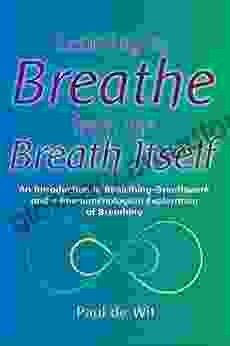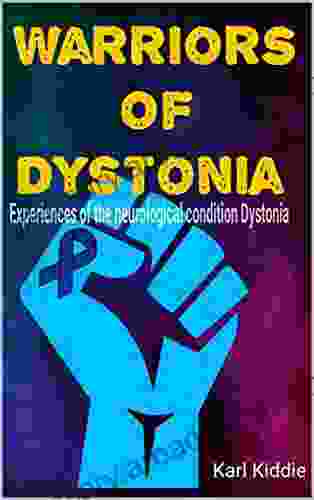Regarding Muslims: From Slavery to Post-Apartheid

5 out of 5
| Language | : | English |
| File size | : | 4110 KB |
| Text-to-Speech | : | Enabled |
| Screen Reader | : | Supported |
| Enhanced typesetting | : | Enabled |
| Word Wise | : | Enabled |
| Print length | : | 230 pages |
The history of Muslims in South Africa is a complex and multifaceted one that spans centuries and is intertwined with the country's broader socio-political landscape. From the early days of slavery to the present post-apartheid era, Muslims have played a significant role in shaping South Africa's social, cultural, and political fabric.
This article aims to provide a comprehensive overview of the Muslim experience in South Africa, exploring their struggles, contributions, and resilience. Through extensive research and interviews, we will delve into the rich history of this community and shed light on their unique perspectives and experiences.
Early History and Slavery
The arrival of Muslims in South Africa can be traced back to the 17th century, when Dutch colonists brought enslaved people from various parts of the Muslim world, including Indonesia, Malaysia, and India. These enslaved individuals were primarily employed as laborers on farms and in households.
During this period, Muslims faced harsh conditions and were often subjected to physical and psychological abuse. However, they also found ways to preserve their cultural and religious practices, establishing small communities and building mosques wherever possible.
The Struggle Against Apartheid
With the advent of apartheid in the 20th century, Muslims found themselves facing additional challenges. The apartheid regime classified Muslims as "Coloureds," which subjected them to strict racial segregation and discrimination.
Despite these obstacles, Muslims actively participated in the struggle against apartheid. They joined political organizations, organized protests, and provided support to black liberation movements. Notable Muslim activists during this period included Imam Abdullah Haron, Imam Haroon, and Dr. Yusuf Dadoo.
Post-Apartheid South Africa
The end of apartheid in 1994 brought new opportunities and challenges for the Muslim community. Muslims played a significant role in the transition to a democratic South Africa, serving in key positions in government and contributing to the country's social and economic development.
However, the post-apartheid era also presented new challenges. Muslims faced issues such as xenophobia, discrimination, and Islamophobia. In recent years, there have been growing concerns about the rise of radicalization and extremism within the Muslim community.
Cultural and Religious Contributions
Throughout their history in South Africa, Muslims have made significant contributions to the country's cultural and religious landscape. They have established numerous mosques, schools, and cultural centers, which serve as hubs for community gatherings and religious activities.
Muslim cuisine has also enriched South African society, introducing new flavors and dishes such as samoosas, biryani, and koeksisters. Muslim artists have made their mark in various fields, including music, literature, and film.
Social and Political Activism
Beyond their religious and cultural contributions, Muslims in South Africa have also been active in social and political movements. They have fought for justice, equality, and human rights for all South Africans.
Muslim organizations such as the Muslim Judicial Council and the South African Muslim Network have played a pivotal role in addressing issues such as poverty, unemployment, and educational disparities. They have also advocated for peace and reconciliation in the aftermath of apartheid.
The history of Muslims in South Africa is a testament to their resilience, adaptability, and commitment to building a just and equitable society. From the early days of slavery to the present post-apartheid era, they have faced numerous challenges, but they have also made significant contributions to the country's social, cultural, and political landscape.
Understanding the Muslim experience in South Africa is essential for a comprehensive understanding of the country's history and its diverse population. It is a story that deserves to be told and celebrated.
5 out of 5
| Language | : | English |
| File size | : | 4110 KB |
| Text-to-Speech | : | Enabled |
| Screen Reader | : | Supported |
| Enhanced typesetting | : | Enabled |
| Word Wise | : | Enabled |
| Print length | : | 230 pages |
Do you want to contribute by writing guest posts on this blog?
Please contact us and send us a resume of previous articles that you have written.
 Book
Book Novel
Novel Page
Page Chapter
Chapter Text
Text Story
Story Genre
Genre Reader
Reader Library
Library Paperback
Paperback E-book
E-book Magazine
Magazine Newspaper
Newspaper Paragraph
Paragraph Sentence
Sentence Bookmark
Bookmark Shelf
Shelf Glossary
Glossary Bibliography
Bibliography Foreword
Foreword Preface
Preface Synopsis
Synopsis Annotation
Annotation Footnote
Footnote Manuscript
Manuscript Scroll
Scroll Codex
Codex Tome
Tome Bestseller
Bestseller Classics
Classics Library card
Library card Narrative
Narrative Biography
Biography Autobiography
Autobiography Memoir
Memoir Reference
Reference Encyclopedia
Encyclopedia Peter Ames Carlin
Peter Ames Carlin Gianni Speciale
Gianni Speciale Susan Gammage
Susan Gammage George Birdsall
George Birdsall George W Luther
George W Luther Piers Moore Ede
Piers Moore Ede Frank Snepp
Frank Snepp G Randy Slone
G Randy Slone Russel R Russo
Russel R Russo Jim Cosgrove
Jim Cosgrove Kristen Ghodsee
Kristen Ghodsee Patricia J Robinson
Patricia J Robinson Gail Gauvreau
Gail Gauvreau Joeaux Robey
Joeaux Robey Frank Mastropolo
Frank Mastropolo Frankie Fraser
Frankie Fraser George F Estabrook
George F Estabrook Gavin Thurston
Gavin Thurston Gi Wook Shin
Gi Wook Shin Luigi Marini
Luigi Marini
Light bulbAdvertise smarter! Our strategic ad space ensures maximum exposure. Reserve your spot today!

 George Martin50 Strategic Rules Updated for Today's Business: A Must-Read for Success in...
George Martin50 Strategic Rules Updated for Today's Business: A Must-Read for Success in...
 Shannon SimmonsDive into the Shadowy World of the FBI: Uncover Secrets from a Former Agent's...
Shannon SimmonsDive into the Shadowy World of the FBI: Uncover Secrets from a Former Agent's... Dawson ReedFollow ·9k
Dawson ReedFollow ·9k Cameron ReedFollow ·12.8k
Cameron ReedFollow ·12.8k Ben HayesFollow ·11.9k
Ben HayesFollow ·11.9k W.B. YeatsFollow ·18.5k
W.B. YeatsFollow ·18.5k D'Angelo CarterFollow ·16.6k
D'Angelo CarterFollow ·16.6k George OrwellFollow ·17.2k
George OrwellFollow ·17.2k Ervin BellFollow ·8.1k
Ervin BellFollow ·8.1k Italo CalvinoFollow ·4.7k
Italo CalvinoFollow ·4.7k

 Chinua Achebe
Chinua AchebeLetters to My Bipolar Self: A Journey of Hope, Healing,...
Bipolar disFree...

 John Parker
John ParkerLearning to Breathe from the Breath Itself: A...
In the whirlwind of modern life, finding...

 Beau Carter
Beau CarterExperiences In Psychoanalysis: A Journey into the...
Are you fascinated by the...

 George Hayes
George HayesExperiences Of The Neurological Condition Dystonia
Navigating the Labyrinth of a Complex...

 Jerome Powell
Jerome PowellOver 50 Keto Meal Prep Recipes: Your Essential Guide to...
Welcome to the world...
5 out of 5
| Language | : | English |
| File size | : | 4110 KB |
| Text-to-Speech | : | Enabled |
| Screen Reader | : | Supported |
| Enhanced typesetting | : | Enabled |
| Word Wise | : | Enabled |
| Print length | : | 230 pages |










